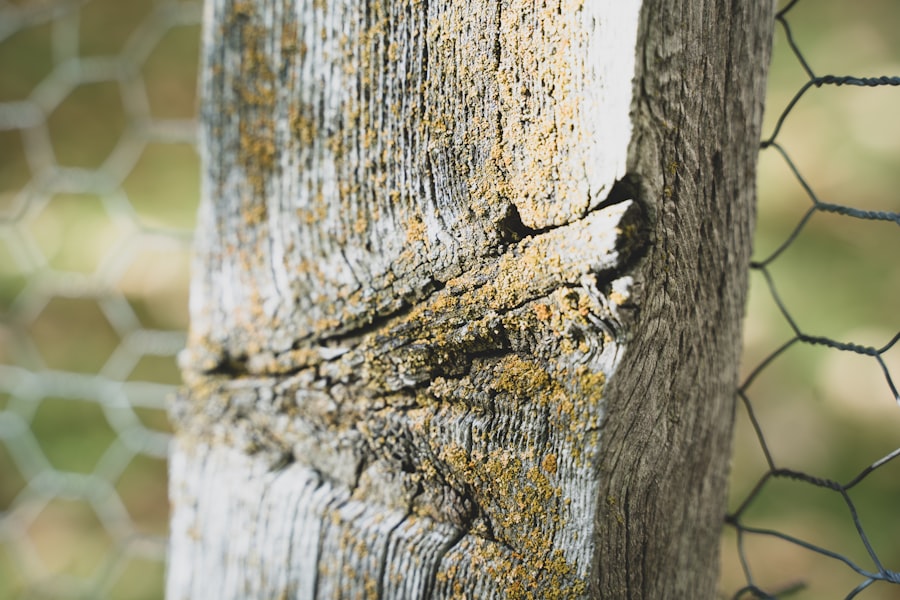Chickens are social creatures with innate instincts to explore and forage. Their curious nature often leads them to investigate new areas and objects. Understanding chicken behavior is essential for managing their presence around porches.
Chickens are attracted to locations that provide food, water, and shelter. They exhibit territorial behavior and may perceive porches as extensions of their domain. Once chickens discover resources in an area, they tend to revisit it habitually.
Chickens are sensitive to environmental changes and can experience stress or anxiety when their routines are disrupted. This stress may manifest in undesirable behaviors like pecking or scratching at porches. Factors such as loud noises, sudden movements, or unfamiliar objects can act as stressors for chickens.
Creating a comfortable and secure environment for chickens involves recognizing and mitigating these stressors. By comprehending chicken behavior, it becomes possible to anticipate their actions and implement effective strategies to deter them from accessing porches. This knowledge enables the development of appropriate measures to manage chicken activity in specific areas.
Table of Contents
- 1 Creating a designated area for the chickens
- 2 Using physical barriers to prevent chickens from accessing the porch
- 3 Implementing deterrents to discourage chickens from the porch
- 4 Providing alternative sources of entertainment and enrichment for the chickens
- 5 Training and positive reinforcement techniques for keeping chickens off the porch
- 6 Seeking professional advice and support for managing chicken behavior
- 7 FAQs
- 7.1 What are some effective methods for keeping chickens off the porch?
- 7.2 Why is it important to keep chickens off the porch?
- 7.3 How can I train my chickens to stay away from the porch?
- 7.4 Are there any natural deterrents that can be used to keep chickens off the porch?
- 7.5 What are the potential risks of allowing chickens on the porch?
Key Takeaways
- Chickens are naturally curious and social animals, and understanding their behavior is key to managing their interactions with the porch.
- Creating a designated area for the chickens with appropriate shelter, food, and water can help keep them away from the porch.
- Using physical barriers such as fences or gates can effectively prevent chickens from accessing the porch area.
- Implementing deterrents like motion-activated sprinklers or noise devices can discourage chickens from venturing onto the porch.
- Providing alternative sources of entertainment and enrichment, such as toys and foraging areas, can keep chickens occupied and less likely to seek out the porch.
- Training and positive reinforcement techniques, such as using treats and consistent commands, can help teach chickens to stay away from the porch.
- Seeking professional advice and support from a veterinarian or animal behaviorist can provide valuable insights and strategies for managing chicken behavior effectively.
Creating a designated area for the chickens
Providing Ample Space and Resources
By providing ample space and resources in this designated area, it encourages the chickens to stay within their own territory and reduces the likelihood of them venturing onto the porch. In addition to providing a designated area, it is important to ensure that the chickens have access to food, water, and shelter within this space. By meeting their basic needs within their designated area, it reduces their motivation to seek out resources elsewhere, such as on the porch.
Meeting Basic Needs
Ensuring that the chickens have access to food, water, and shelter within their designated area is crucial in keeping them content and reducing their desire to explore other areas.
Creating a Comfortable Environment
Creating a comfortable and enriching environment within the designated area can also help in keeping the chickens content and less inclined to explore other areas.
Using physical barriers to prevent chickens from accessing the porch

Using physical barriers is an effective way to prevent chickens from accessing the porch. This can include installing a fence or gate around the porch area to create a physical barrier that prevents the chickens from entering. The fence or gate should be tall enough to prevent the chickens from flying or jumping over it, and secure enough to withstand any attempts to breach it.
Additionally, it is important to ensure that there are no gaps or openings in the barrier that the chickens could squeeze through. Another physical barrier that can be used is chicken wire or mesh netting. This can be installed around the perimeter of the porch or in areas where the chickens are most likely to access.
The chicken wire or mesh netting should be securely fastened and extend several inches into the ground to prevent the chickens from digging underneath it. By using physical barriers, it creates a clear boundary that deters the chickens from accessing the porch and reinforces their designated area.
Implementing deterrents to discourage chickens from the porch
Implementing deterrents is another effective strategy for keeping chickens off the porch. There are various deterrents that can be used, such as motion-activated sprinklers, ultrasonic devices, or visual deterrents like scarecrows or reflective tape. Motion-activated sprinklers are particularly effective as they startle the chickens with a sudden burst of water when they approach the porch, teaching them to associate the area with an unpleasant experience.
Ultrasonic devices emit high-frequency sounds that are unpleasant for chickens and can deter them from approaching the porch. Visual deterrents like scarecrows or reflective tape can also be effective in deterring chickens from the porch. Scarecrows create a visual threat that can discourage chickens from approaching, while reflective tape creates a disorienting effect that makes the area less appealing to them.
By implementing deterrents, it creates an aversive experience for the chickens and teaches them to avoid the porch.
Providing alternative sources of entertainment and enrichment for the chickens
Providing alternative sources of entertainment and enrichment for the chickens is essential in keeping them occupied and less inclined to visit the porch. This can include providing toys, perches, and scratching posts within their designated area. Toys such as hanging mirrors or pecking blocks can provide mental stimulation for the chickens and reduce their desire to explore other areas.
Perches and scratching posts give them opportunities for natural behaviors such as roosting and scratching, which can keep them engaged and content within their own space. In addition to physical enrichment, it is important to provide environmental enrichment for the chickens. This can include introducing new objects or structures within their designated area, such as logs, branches, or hiding spots.
By creating a dynamic and stimulating environment, it reduces their motivation to seek out stimulation on the porch. Providing alternative sources of entertainment and enrichment for the chickens not only keeps them occupied but also promotes their overall well-being.
Training and positive reinforcement techniques for keeping chickens off the porch

Positive Reinforcement Techniques
Training and positive reinforcement techniques can be used to teach chickens to stay off the porch. This can include using verbal commands or cues such as “off” or “away” when they approach the porch, followed by positive reinforcement when they comply. Positive reinforcement can include rewards such as treats or praise when the chickens stay within their designated area and do not attempt to access the porch.
Deterrent Cues
Another training technique is using deterrent cues such as a loud noise or a gentle spray of water when the chickens approach the porch. This teaches them to associate approaching the porch with an unpleasant experience and encourages them to stay away.
Consistency is Key
It is important to be consistent with these training techniques and provide ample opportunities for positive reinforcement to effectively teach the chickens to stay off the porch. By consistently using these cues and providing positive reinforcement, it teaches the chickens to associate staying off the porch with a positive experience.
Seeking professional advice and support for managing chicken behavior
If despite all efforts, managing chicken behavior remains challenging, seeking professional advice and support can be beneficial. Consulting with a veterinarian or animal behaviorist who specializes in poultry can provide valuable insights into understanding chicken behavior and developing effective strategies for managing it. They can offer personalized recommendations based on the specific needs and behaviors of the chickens, as well as provide guidance on training techniques and environmental enrichment.
In addition to professional advice, seeking support from other chicken owners or poultry enthusiasts can also provide valuable insights and practical tips for managing chicken behavior. Online forums, local poultry clubs, or community groups can be great resources for connecting with others who have experience in managing chicken behavior and can offer support and guidance. By seeking professional advice and support, it ensures that efforts to manage chicken behavior are informed by expert knowledge and tailored to the specific needs of the chickens.
In conclusion, understanding chicken behavior is essential in developing effective strategies for keeping them off the porch. Creating a designated area for the chickens, using physical barriers and deterrents, providing alternative sources of entertainment and enrichment, as well as training techniques and seeking professional advice are all valuable approaches in managing chicken behavior around the porch. By implementing these strategies, it creates a more comfortable and secure environment for both the chickens and homeowners alike.
If you’re struggling to keep your chickens off the porch, you may also be interested in learning about how to keep ducks. Ducks can also be quite messy and may wander onto your porch if not properly contained. Check out this article on what you should feed ducks to ensure they stay away from your porch and are properly cared for.
FAQs
What are some effective methods for keeping chickens off the porch?
Some effective methods for keeping chickens off the porch include using physical barriers such as fences or gates, providing alternative areas for the chickens to roam and explore, and using deterrents such as motion-activated sprinklers or noise-making devices.
Why is it important to keep chickens off the porch?
Keeping chickens off the porch is important to maintain cleanliness and prevent damage to the porch and surrounding areas. Chickens can leave droppings, scratch and peck at surfaces, and potentially cause safety hazards for people using the porch.
How can I train my chickens to stay away from the porch?
Training chickens to stay away from the porch can be achieved through consistent reinforcement of boundaries, using positive and negative reinforcement techniques, and providing alternative areas for the chickens to explore and forage.
Are there any natural deterrents that can be used to keep chickens off the porch?
Yes, there are natural deterrents that can be used to keep chickens off the porch, such as planting prickly or thorny bushes around the perimeter, using citrus peels or essential oils with strong scents, and creating physical barriers with natural materials like branches or rocks.
What are the potential risks of allowing chickens on the porch?
Allowing chickens on the porch can pose risks such as unsanitary conditions from droppings, damage to the porch structure and furniture, potential aggression towards people using the porch, and attracting pests and predators to the area.
Meet Walter, the feathered-friend fanatic of Florida! Nestled in the sunshine state, Walter struts through life with his feathered companions, clucking his way to happiness. With a coop that’s fancier than a five-star hotel, he’s the Don Juan of the chicken world. When he’s not teaching his hens to do the cha-cha, you’ll find him in a heated debate with his prized rooster, Sir Clucks-a-Lot. Walter’s poultry passion is no yolk; he’s the sunny-side-up guy you never knew you needed in your flock of friends!







